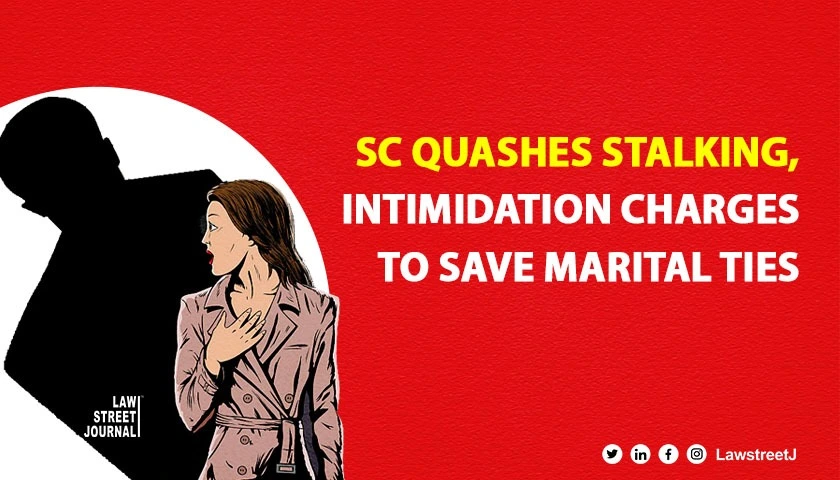NEW DELHI: The Supreme Court recently quashed a criminal case of stalking and criminal intimidation against an accused to preserve the marital ties between the parties. The court, while invoking Article 142 of the Constitution of India, held that affirming the judgment rendered by the Telangana High Court could have disastrous consequences for the accused, which in turn could jeopardize his matrimonial relationship with the complainant.
Article 142 of the Constitution of India empowers the Supreme Court to pass any decree or order necessary for doing complete justice in any case or matter pending before it.
The facts of the case are that the Court acquitted the accused-appellant of the offences under Section 11 read with Section 12 of the POCSO Act but, at the same time, convicted and sentenced him for offences under Sections 354D and 506-Part I IPC. The High Court further reduced the sentences awarded to the accused-appellant to three months on both counts. The appellant's main argument before the Supreme Court centered on the fact that he had married the complainant, who was the alleged victim, while the appeal was still ongoing.
The court further observed that the offences under Section 354D and Section 506 IPC were personal to the complainant and the accused.
Additionally, the court noted that the appellant and the complainant had married each other during the pendency of the appeal, which provided a reasonable belief that both were involved in a relationship even when the alleged offences were said to have been committed.
In conclusion, the court allowed the appeal filed by the accused, thereby quashing and setting aside the impugned judgments passed by the High Court as well as the Trial Court which had convicted the appellant.













